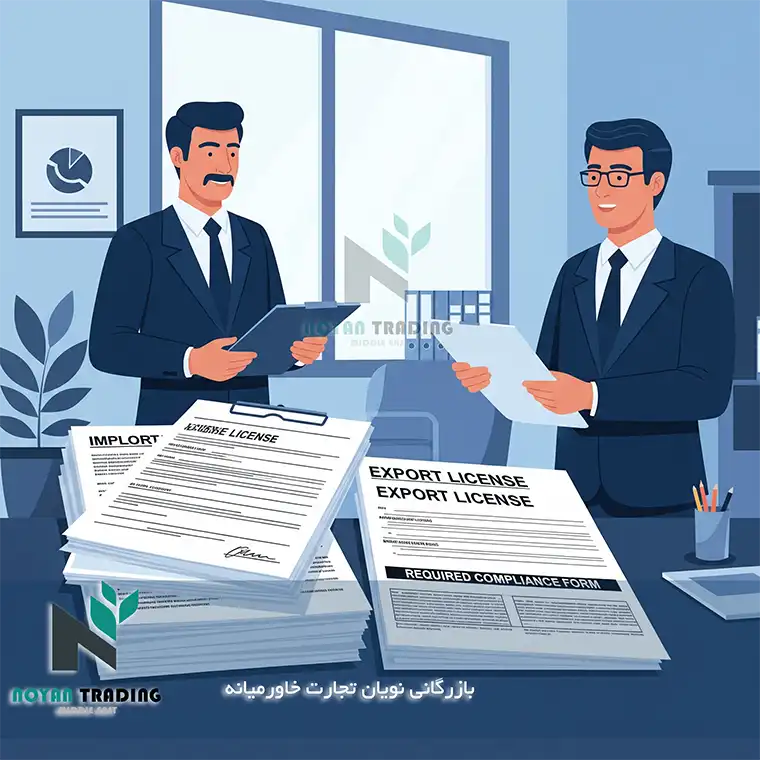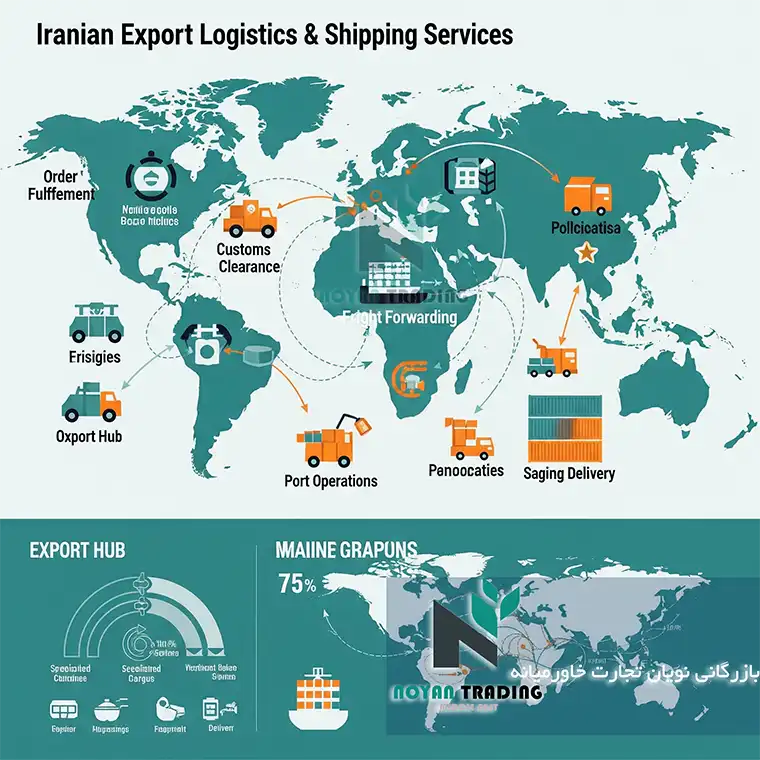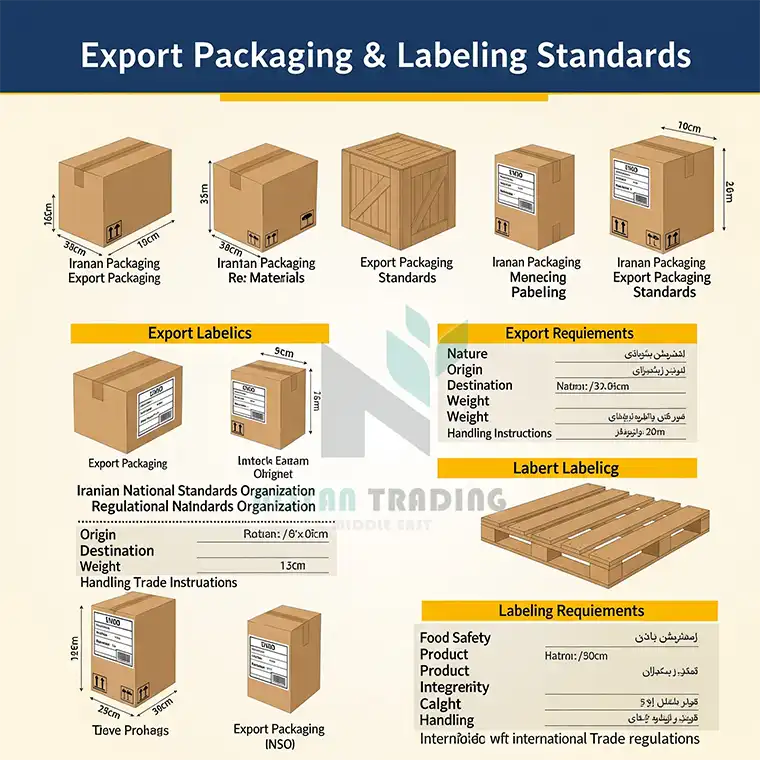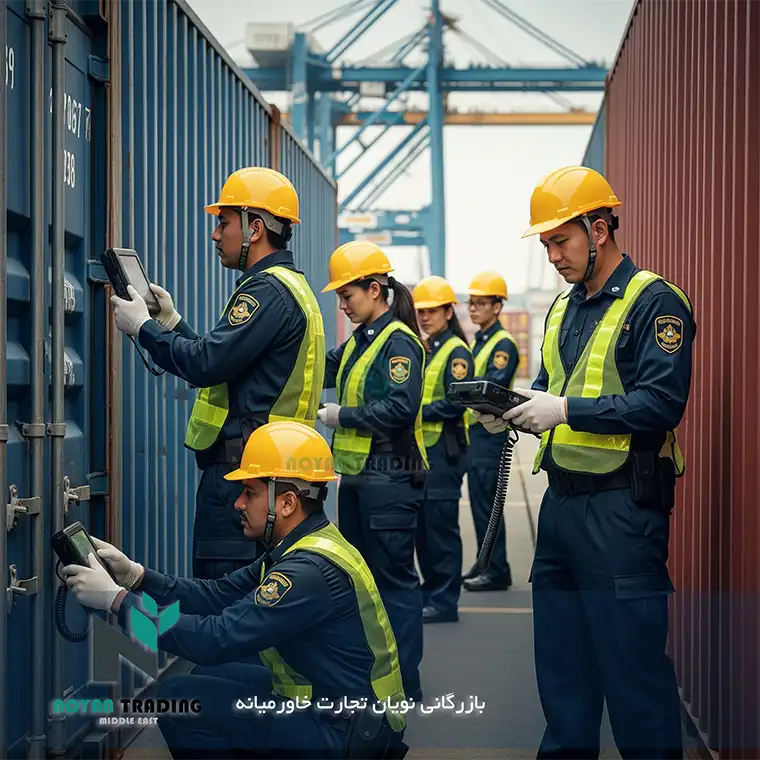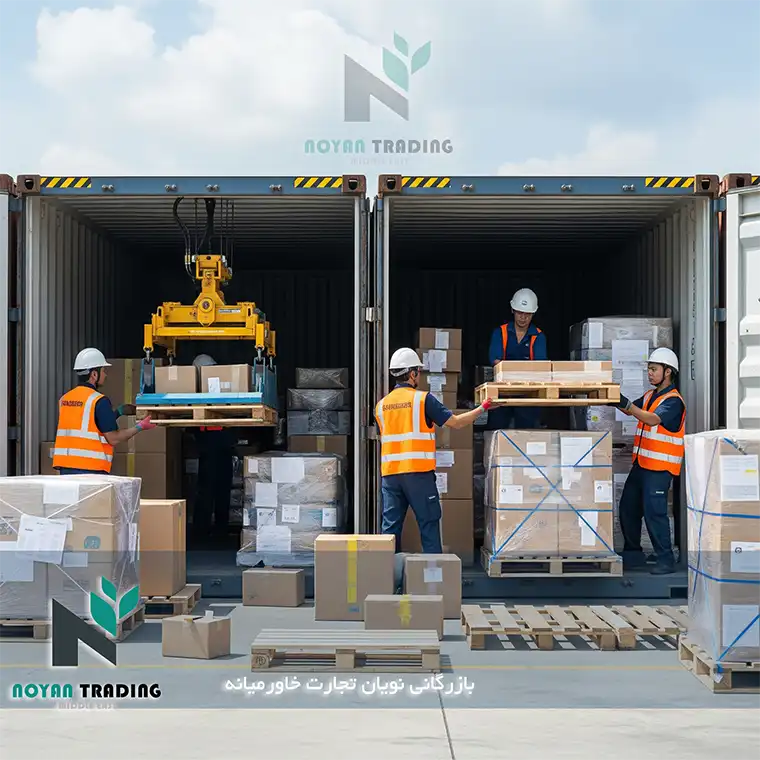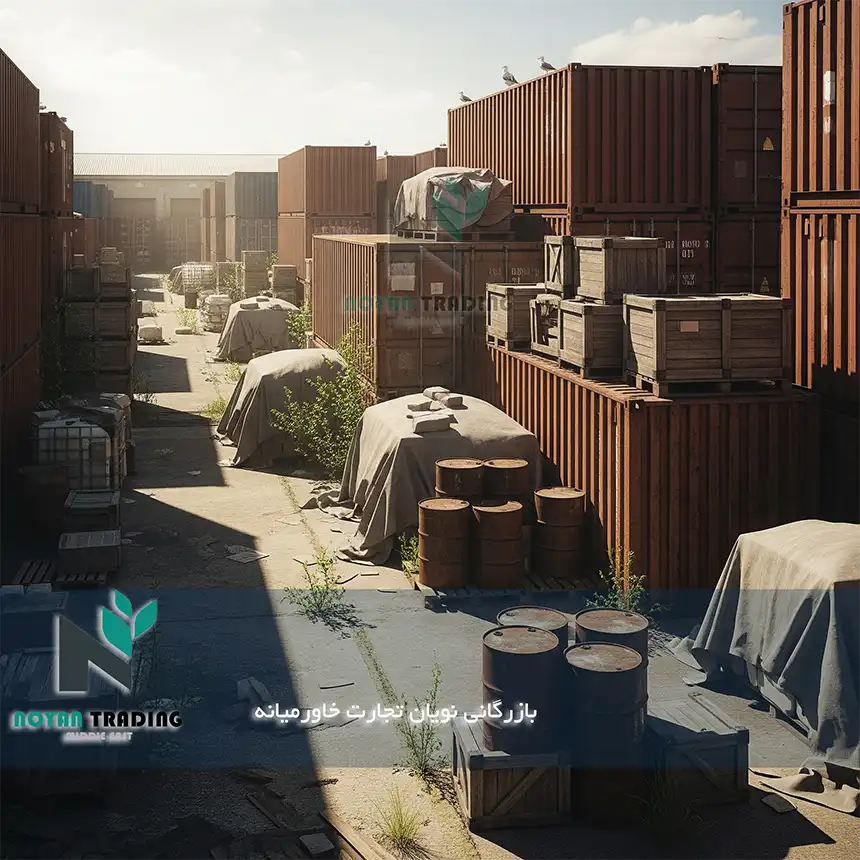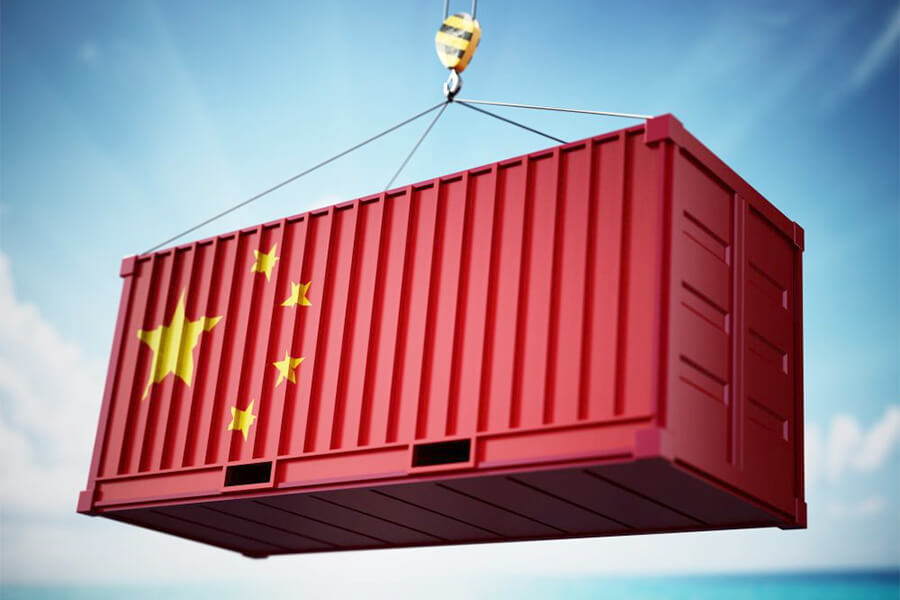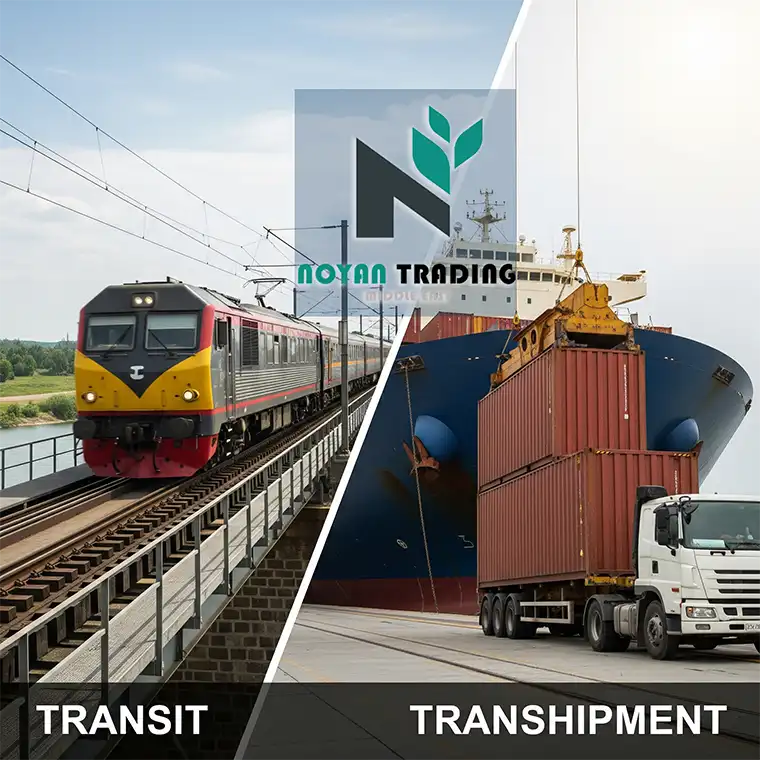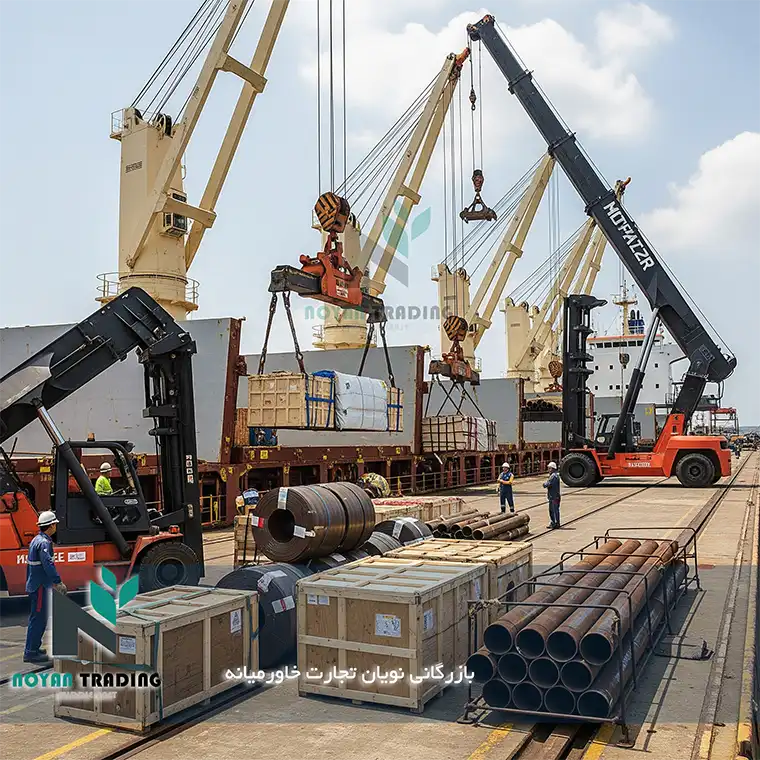Comprehensive Guide to Obtaining a License to Export Goods in Iran: Step by Step to Global Markets
Exporting goods is the beating heart of any country’s economy and is also a unique opportunity for Iranian businesses to grow, earn foreign exchange, and access international markets. But entering this field without understanding and following the legal and administrative procedures can be challenging. If you are planning to send your products abroad and are looking for a complete guide on your blog, this comprehensive article is for you. Below, we will learn step by step about the steps to obtain a license to export goods in Iran.
The cornerstone of export: understanding the product and target market
Before any administrative action, the most important step is to select the right product and accurately understand the target market. This step includes extensive research to determine the needs of other countries, the competitive potential of your product, and the standard and quality requirements required in foreign markets. Is your product capable of competing with similar international products? Is there a country that urgently needs your product and is willing to pay a reasonable price for it? The answers to these questions will make your path clearer.
Getting a Business Card: The Gateway to International Trade
The first and most basic document for any export and import activity in Iran is a business card. This card is issued by the Iranian Chamber of Commerce, Industries, Mines and Agriculture and serves as a license for your activity in the field of international trade. Whether you are a natural person or a legal entity (company), you must apply to receive this card. The process of obtaining it includes providing identity, financial and place of business documents and is usually valid for one year.
Company Registration and Obtaining an Economic Code (for Legal Entities)
If you intend to carry out export activities as a legal entity and company, after registering your company, it is necessary to also obtain an economic code. This code is required to identify and register your company’s economic activities with the Iranian Tax Administration.
Register in the Customs System (EPL): A Bridge to Goods Declaration
To carry out all customs matters related to exports, you must register in the Comprehensive Customs System (EPL). This system allows you to register and track your customs declarations electronically. After registration, you will receive a username and password that are necessary to access customs services.
Prepare primary documents: Proforma Invoice and Contract
- Proforma Invoice: This primary document contains all the details related to your exported goods, including the type of goods, quantity, unit price, total price, payment terms, delivery terms (Incoterms), and other items agreed upon with the foreign buyer. This proforma invoice is a formal offer.
- Export Contract: After the proforma invoice is approved, a formal and comprehensive contract is concluded between you (the exporter) and the foreign buyer. This contract should include all the details of the agreements, payment terms, responsibilities, and other legal clauses.
Obtaining specific product licenses: Depending on the type of product
Some products, due to their specific nature, require special licenses from the relevant organizations for export. This stage is of great importance, as failure to obtain these permits can lead to the halt of the export process:
- Standard Certificate: For goods subject to mandatory export standard regulations (such as some food, household appliances, industrial equipment), obtaining this certificate from the National Organization of Standards of Iran is mandatory.
- Health and Quarantine Certificate: Animal, plant, and food products require a health certificate from the Ministry of Health, Medical Education and Training or the Ministry of Agricultural Jihad.
- Atomic Energy Organization Permit: For some specific materials and scrap metals, this permit is required.
- Permits from other institutions: Depending on the type of goods (for example, works of art and antiques from the Ministry of Cultural Heritage, Tourism and Handicrafts).
Preparation of shipping and packaging documents: A detailed list of goods
- Packing List: This document details the contents of each package, net and gross weight, dimensions, and specifies the number of packages. This list is very important for customs, the shipping company, and the buyer.
- Inspection of goods (if required): Export goods may require quality inspection by approved inspection companies.
Declaration of goods and obtaining an export license: Crossing the customs barrier
At this stage, you must declare your goods to the relevant customs office along with all the necessary documents. This includes:
- Preparation of export declaration: Detailed information about the goods, value, weight, destination and other details are recorded in this declaration.
- Payment of customs duties (if any): In some cases, minor duties may be applied for exporting goods.
After customs examines the documents and goods, an export permit is issued to you, which is the final authorization for the goods to leave the country.
Transportation and insurance: Ensuring the health of the goodsTo the destination
To transport goods, you must sign a contract with a reputable international shipping company. Depending on the type of goods and destination, land, sea, or air transportation methods are used. Also, to protect your goods from possible accidents along the way, be sure to insure your goods with an insurance company.
Certificate of Origin and Transfer of Funds: Completing the Export Cycle
- Certificate of Origin: After loading the goods, you must visit the Chamber of Commerce, Industries, Mines, and Agriculture to obtain this certificate. This certificate indicates the country of production of the goods and is required for many countries to determine import tariffs and verify the identity of the goods.
- Transfer of funds: The last step is to follow up on receiving payment for the exported goods from the foreign buyer. This process can be done through various international payment methods such as bank transfer, letter of credit (LC) or other agreed methods.
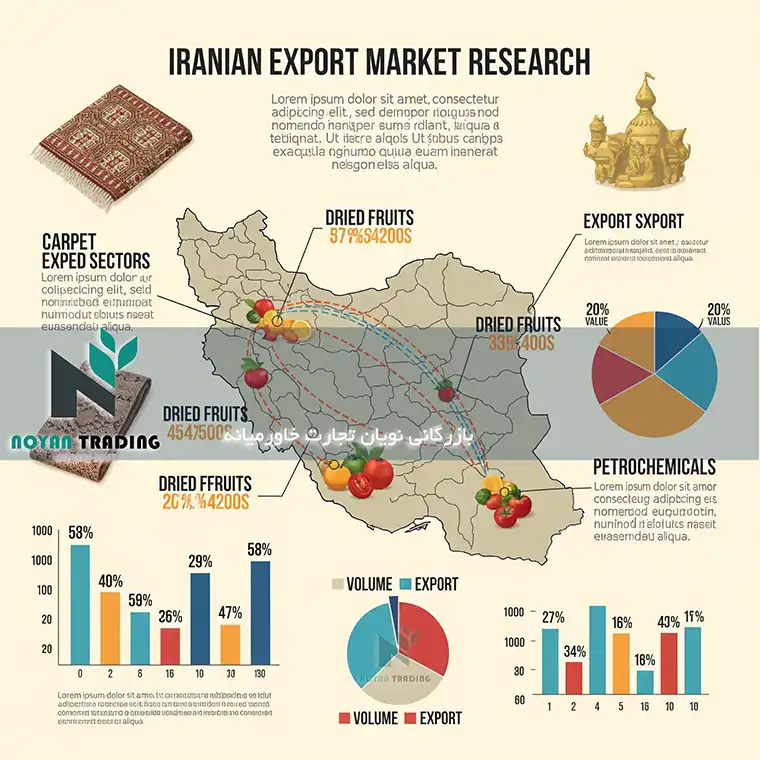
Documents required for exporting goods (in general):
For your convenience, here is a list of general documents that you will need for exporting goods:
- Valid business card (in the name of the exporter)
- Export license (if required and depending on the type of goods)
- Health and quarantine certificate (For livestock and vegetable products)
- Standard certificate (for goods subject to mandatory standards)
- Atomic energy certificate (in special cases)
- Proforma Invoice
- Commercial Invoice
- Packing List
- Certificate of Origin
- Bill of Lading or Airway Bill
- Cargo insurance
- Customs declaration
- CEO/signatory identity documents (national card, identity card)
- Company documents (establishment notice, notice of changes, company articles of association – for legal entities)
- Economic code
- Certificate of no-fault Background
Key tips for export success:
- Permitted, conditional, and prohibited goods: In Iran, goods are divided into three categories: permitted, conditional, and prohibited for export. Permitted goods do not require a specific license, conditional goods are possible with a license, and the export of prohibited goods is prohibited by Sharia or law.
- Expert advice: Given the complexities of export and import laws and regulations, it is highly recommended to use the advice of clearance companies, international trade experts, and legal consultants.
- Destination country regulations: In addition to Iranian regulations, you should also be fully aware of the import laws and regulations of the destination country and prepare the documents required by that country.
- Proper packaging: Proper packaging of goods not only prevents them from being damaged, but is also effective in creating a professional image of your product.
- Determining a competitive price: Correct pricing, taking into account all costs and market conditions, is an important factor in your export success.
Although exporting goods is a multifaceted process, with careful planning, understanding the laws, and following them step by step, it can Open the gates of growth and development for your business. We hope this guide has been useful to you.

